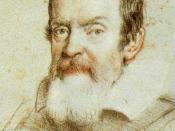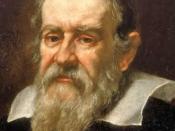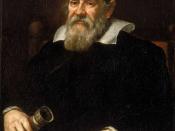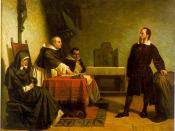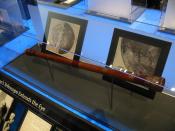In Galileo's time, scientific experiments were performed on casual viewings and perceptions. Galileo was the first scientist to base physics around mathematics, and to perform 'fair' experiments where only one variable is changed. Thus, he made several important discoveries, particularly in the area of physics.
Early in his career Galileo was able to disprove the Aristotelian belief that the acceleration of falling bodies is proportional to its weight. Galileo's views were laughed at by professors of his time, but he was able to prove his theory by simultaneously dropping two bodies of the same materials but of different sizes off the leaning tower of Piza in front of dozens of professors of Aristotelian belief, hereby proving that their acceleration was proportional to their density rather than weight. Though this account is sometimes dismissed as legend, his manuscripts show that he was able to prove in some way this theory. Later in his career he found that acceleration in freefall is at a constant rate.
From here on he was able to show that cannonballs followed a predictable trajectory, and that he could mathematically calculate this, leading huge improvements in gunnery efficiency.
In 1593 Galileo invented a mathematical 'compass' capable of performing complex calculations in short time. This lead to his discoveries with pendulums and projectiles. These discoveries proved that the Aristotelian belief was fundamentally wrong and consequently that almost all previous work in physics was incorrect, although it was not for sixty years that this was accepted by the bulk of the people.
